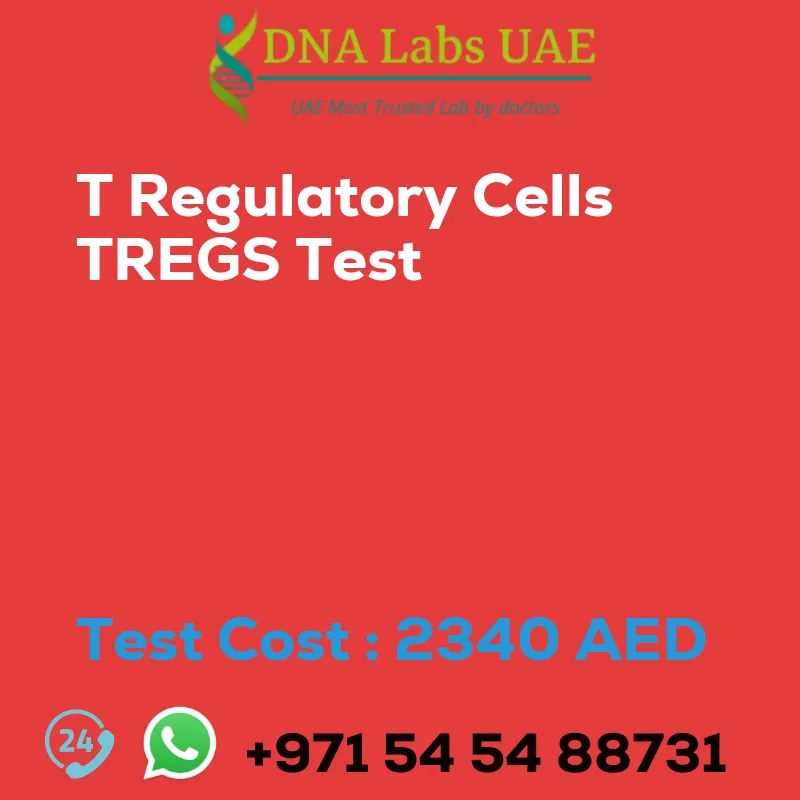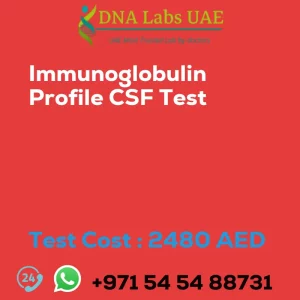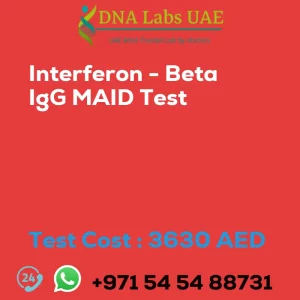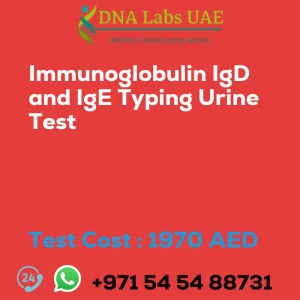T REGULATORY CELLS TREGS Test
Test Name: T REGULATORY CELLS TREGS Test
Components: *CD4*CD25*FOXP3*CD45RA
Price: 2340.0 AED
Sample Condition: 3 mL (2 mL min.) whole blood in 1 Lavender Top (EDTA) tube AND 3 mL (2 mL min.) whole blood in 1 Green Top (Sodium Heparin) tube. Mix thoroughly & ship immediately at 18-22°C. DO NOT REFRIGERATE OR FREEZE. Specify time of draw and date in test request form. It is mandatory to provide clinical details & CBC report.
Report Delivery: Sample Daily by 9 am; Report Next Working day
Method: Flow Cytometry
Test type: Immunodeficiency Disorders
Doctor: Physician
Test Department: FLOW CYTOMETRY
Pre Test Information: It is mandatory to provide clinical details & CBC report. For serial monitoring, it is recommended to draw the specimen at the same time of the day.
Test Details
The T Regulatory Cells (Tregs) test is a laboratory test that measures the levels and function of Tregs in the immune system. Tregs are a type of white blood cell that play a crucial role in maintaining immune tolerance and preventing excessive immune responses.
The test is typically performed to evaluate the function and number of Tregs in individuals with autoimmune disorders, allergies, and certain types of cancer. It can help diagnose and monitor the progression of these conditions, as well as assess the effectiveness of immunotherapy treatments.
During the test, a blood sample is collected from the individual. The sample is then analyzed in the laboratory to measure the levels of Tregs and assess their function. This is usually done by staining the cells with specific antibodies and using flow cytometry or other techniques to identify and quantify Tregs.
The results of the Tregs test can provide valuable information about the immune system’s regulatory function and help guide treatment decisions. For example, low levels or impaired function of Tregs may indicate an increased risk of autoimmune diseases, while high levels may suggest immune suppression or tolerance to certain antigens.
It is important to note that the interpretation of Tregs test results should be done by a qualified healthcare professional in conjunction with other clinical findings. The test is not a standalone diagnostic tool and should be used in conjunction with other tests and assessments to make a comprehensive diagnosis and treatment plan.
| Test Name | T REGULATORY CELLS TREGS Test |
|---|---|
| Components | *CD4*CD25*FOXP3*CD45RA |
| Price | 2340.0 AED |
| Sample Condition | 3 mL (2 mL min.) whole blood in 1 Lavender Top (EDTA) tube AND 3 mL (2 mL min.) whole blood in 1 Green Top (Sodium Heparin) tube. Mix thoroughly & ship immediately at 18\u0192??22?\u00f8C. DO NOT REFRIGERATE OR FREEZE. Specify time of draw and date in test request form. It is mandatory to provide clinical details& CBC report. |
| Report Delivery | Sample Daily by 9 am; Report Next Working day |
| Method | Flow Cytometry |
| Test type | Immunodeficiency Disorders |
| Doctor | Physician |
| Test Department: | FLOW CYTOMETRY |
| Pre Test Information | It is mandatory to provide clinical details& CBC report. For serial monitoring, it is recommended to draw the specimen at the same time of the day. |
| Test Details | The T Regulatory Cells (Tregs) test is a laboratory test that measures the levels and function of Tregs in the immune system. Tregs are a type of white blood cell that play a crucial role in maintaining immune tolerance and preventing excessive immune responses. The test is typically performed to evaluate the function and number of Tregs in individuals with autoimmune disorders, allergies, and certain types of cancer. It can help diagnose and monitor the progression of these conditions, as well as assess the effectiveness of immunotherapy treatments. During the test, a blood sample is collected from the individual. The sample is then analyzed in the laboratory to measure the levels of Tregs and assess their function. This is usually done by staining the cells with specific antibodies and using flow cytometry or other techniques to identify and quantify Tregs. The results of the Tregs test can provide valuable information about the immune system’s regulatory function and help guide treatment decisions. For example, low levels or impaired function of Tregs may indicate an increased risk of autoimmune diseases, while high levels may suggest immune suppression or tolerance to certain antigens. It is important to note that the interpretation of Tregs test results should be done by a qualified healthcare professional in conjunction with other clinical findings. The test is not a standalone diagnostic tool and should be used in conjunction with other tests and assessments to make a comprehensive diagnosis and treatment plan. |







